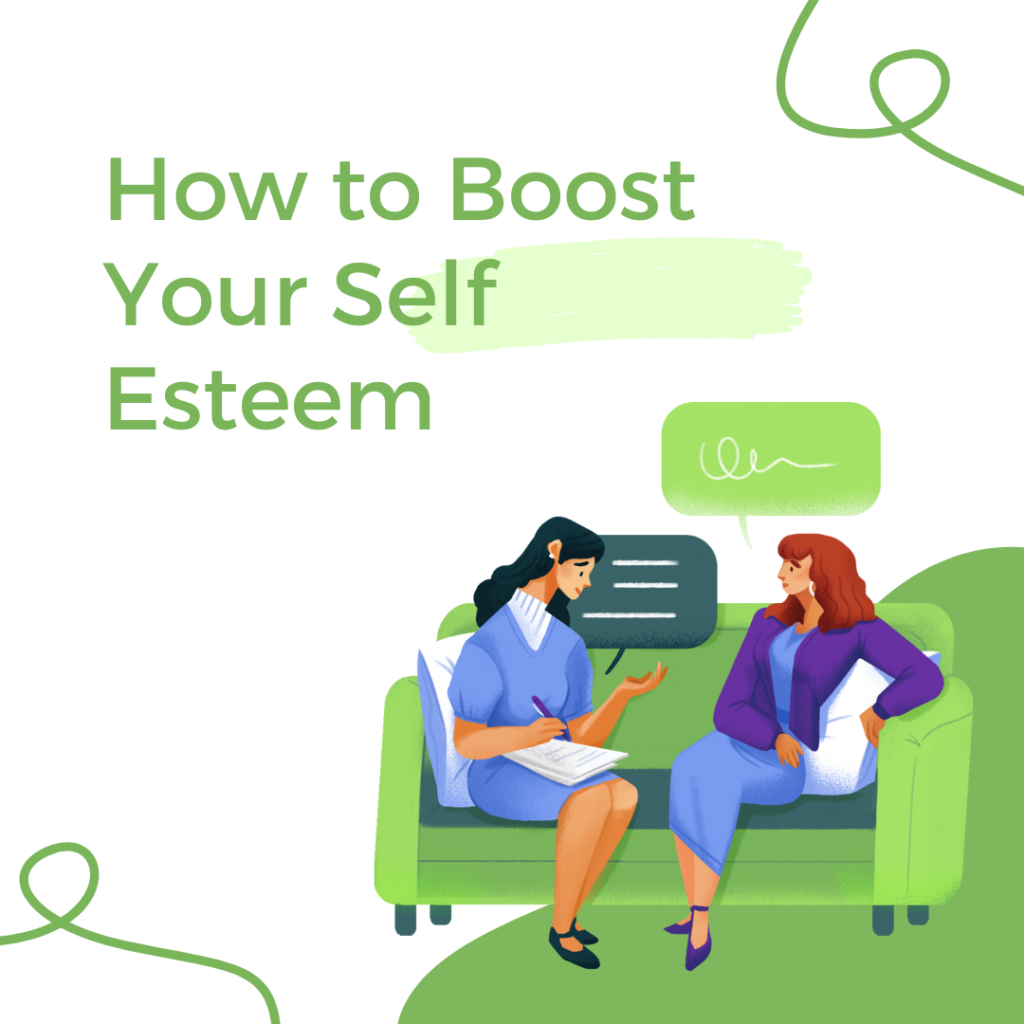
Do you struggle with low self esteem? If so, you are not alone. Low self-esteem is a crippling condition that affects every area of your life. It is often the result of past traumas, negative self-talk, and unrealistic expectations. But the good news is that it is possible to learn how to boost your self esteem when it’s low.
In this blog post, we will explore various tips and techniques to help you increase your self-esteem and return to feeling like your best self.
What is self esteem?
Self esteem is a measure of your overall self-worth. It’s how you feel about yourself, whether positive or negative. It’s not just about how good you are at things but also about how much value you place on your abilities and qualities. The higher your self esteem, the more confident and capable you feel. The lower it is, the more likely you are to feel insecure and less confident in your abilities.
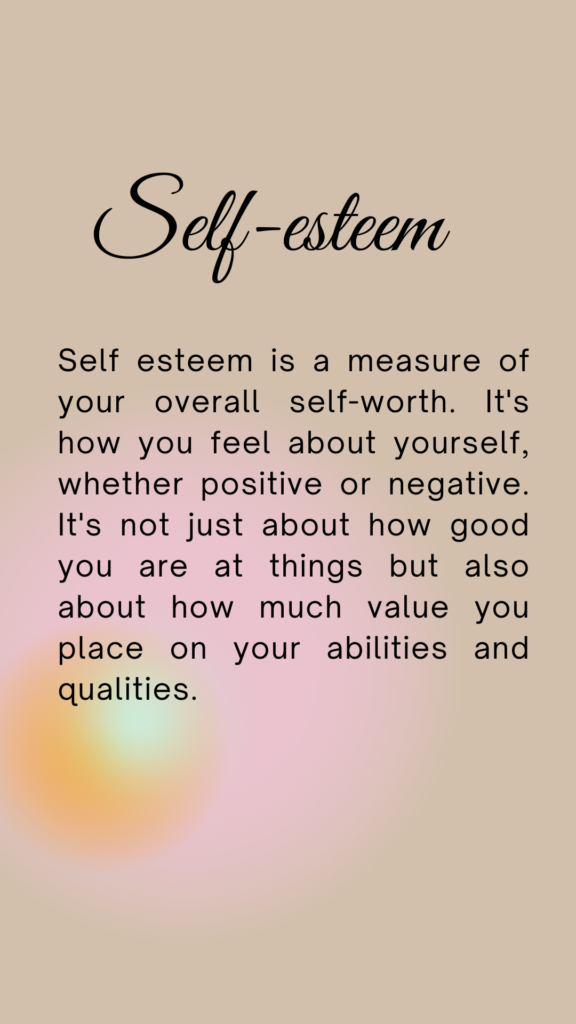
Self esteem definition
Self esteem is a term used to describe an individual’s subjective evaluation of their own worth, value, and capabilities. It refers to a person’s overall sense of self-worth and self-respect and can be influenced by various internal and external factors, including past experiences, personal beliefs and attitudes, cultural and societal messages, and relationships with others.
It is typically associated with feelings of confidence, self-respect, and a positive self-image, while low confidence is often linked to feelings of self-doubt, insecurity, and negative self-talk. Building and maintaining healthy self esteem is important to mental and emotional well-being.
Healthy vs. Low Self esteem
People with healthy self esteem have a positive self-image, meaning they view themselves positively and feel good about who they are and their accomplishments. They also have a strong sense of self-worth and don’t let negative opinions of others affect their feelings.
On the other hand, people with low self esteem tend to think negatively about themselves, doubt their capabilities, and believe they are not worthy of anything good. Low self esteem can have a serious impact on mental health, as it can lead to feelings of worthlessness, anxiety, and depression.
Self esteem Vs. Confidence
Self esteem and confidence are related concepts, but they are not exactly the same thing.
It refers to how a person views and values themselves as a whole. It involves a person’s beliefs and attitudes about their own worth and capabilities, and it can have an impact on their overall sense of well-being. People with high self-esteem tend to feel more positive and accepting of themselves, even when faced with challenges or setbacks.
Confidence, on the other hand, refers to a person’s belief in their own abilities to accomplish a specific task or achieve a particular goal. It is a more situational or specific trait, and it can vary depending on the task at hand. For example, a person might have high confidence in their ability to play basketball but low confidence in their ability to sing.
In essence, self esteem is a more general and holistic sense of self-worth, while confidence is a more specific belief in one’s abilities related to a particular task or goal. Both esteem and confidence are important for mental health and well-being, but they can be developed and improved through different strategies and techniques.
What is it like to have self esteem?
Healthy self esteem means having a positive sense of self-worth, self-respect, and self-confidence. It means you strongly believe in your abilities, qualities, and value as a person. When you have healthy self esteem, you can recognize your strengths and weaknesses and accept yourself for who you are.
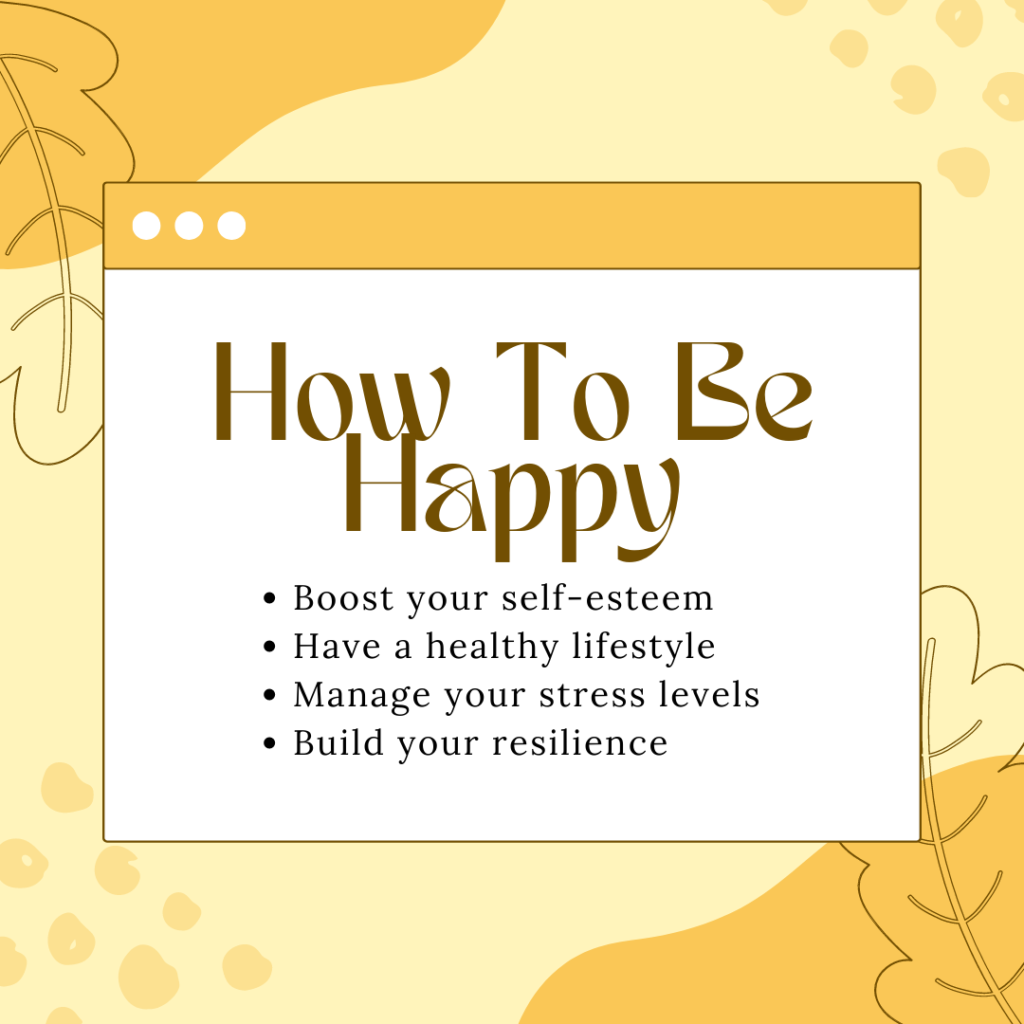
It gives you confidence.
It gives you the confidence to take on new challenges, feel secure in your relationships, and have an overall positive outlook on life. People with high self esteem generally have a good sense of self-worth and don’t let negative thoughts influence their lives. They believe in their capabilities and are less likely to compare themselves to others.
It has a positive impact on Mental Health.
Having a positive view of yourself can help reduce stress and make it easier to cope with difficult situations. This, in turn, can help you to enjoy life more and be better able to handle any issues that come your way. It can also positively impact your mental health.
People with healthy self esteem are typically able to:
- Recognize their own value and worth as a person, regardless of their flaws or imperfections.
- Accept themselves for who they are, and treat themselves with kindness and compassion.
- Set realistic expectations for themselves, and don’t constantly compare themselves to others.
- Trust their judgment and decisions.
- Feel confident in their abilities, and embrace new challenges enthusiastically and optimistically.
- Assert themselves in healthy ways, and stand up for their needs and boundaries.
All of these can lead to a more positive and fulfilling life, as you can navigate challenges and relationships with greater confidence and resilience. However, it’s important to note that it is not a static quality and can fluctuate over time based on various life events and experiences. It’s important to practice self-care and seek support when needed to maintain it.
Types of self esteem
Self esteem is an important factor in our mental health and overall wellbeing. It’s how we view ourselves and affects our confidence, relationships, and success. There are several different types.
High self esteem
This is a positive evaluation of oneself that reflects confidence and self-assurance. People with this type tend to be more resilient and able to handle challenges.
Low self esteem
This negative evaluation of oneself reflects feelings of inadequacy, self-doubt, and a lack of confidence. People with this type may have difficulty asserting themselves and struggle with anxiety and depression. People with low confidence often experience worthlessness, shame, and guilt and may have difficulty forming relationships with others. They may feel like they are not ‘good enough’ and can often be highly influenced by negative thoughts.
Healthy self esteem
It refers to where a person has an overall positive view of themselves. People with this type generally have realistic expectations of themselves, know their strengths and weaknesses, have healthy relationships with others, and accept themselves for who they are. They don’t try to compare themselves to others or obsess over perfection.
Negative self esteem
It occurs when someone has an overall negative opinion of themselves. People with this type often find it difficult to believe in their abilities and may be highly critical of themselves. This can lead to feelings of worthlessness, failure, and insecurity.
Stable self esteem
This refers to an individual’s self esteem being consistent over time and across different situations.
Unstable self-esteem
This refers to an individual’s self esteem fluctuating over time and across different situations, depending on external factors such as feedback from others.
What is low self esteem?
Low self esteem is a negative evaluation of oneself that reflects feelings of inadequacy, self-doubt, and a lack of confidence. People with low confidence tend to have negative beliefs about themselves and their abilities and may feel unworthy or not good enough.
It can manifest in various ways, such as social withdrawal, difficulty asserting oneself, a tendency to be overly self-critical, and sensitivity to criticism from others. People with low esteem may also struggle with anxiety, depression, and other mental health issues.
It can be influenced by various factors, such as past experiences, relationships with others, cultural and societal norms, and one’s thoughts and beliefs.
Causes of self esteem
There are many potential causes.
Thoughts and Beliefs
One of the primary causes is the thoughts and beliefs we have about ourselves. When people think negatively about themselves, they start to believe that they are inadequate or not worthy of respect and success. These negative thoughts can lead to feelings of shame, inferiority, and worthlessness, damaging mental health.
People around us
Another cause is the people around us. If our family, friends, or peers tell us we’re not good enough or are always criticizing us, it can negatively impact our confidence.
Trauma
If someone experiences trauma or abuse can leave feeling unworthy and helpless and create a feeling of low confidence.
Early childhood experiences
Experiences during childhood, such as abuse, neglect, or criticism from parents, teachers, or peers, can significantly impact confidence and esteem.
Personal characteristics and traits
Personality traits such as introversion, perfectionism, and sensitivity can influence.
Social factors
Social support, such as positive relationships with friends and family, can positively influence it, while social isolation, rejection, or discrimination can negatively impact it.
How to build self esteem
Building self-esteem is a process that takes time and effort, but it can have a significant positive impact on an individual’s overall wellbeing.
Here are some strategies that can help to build self esteem:
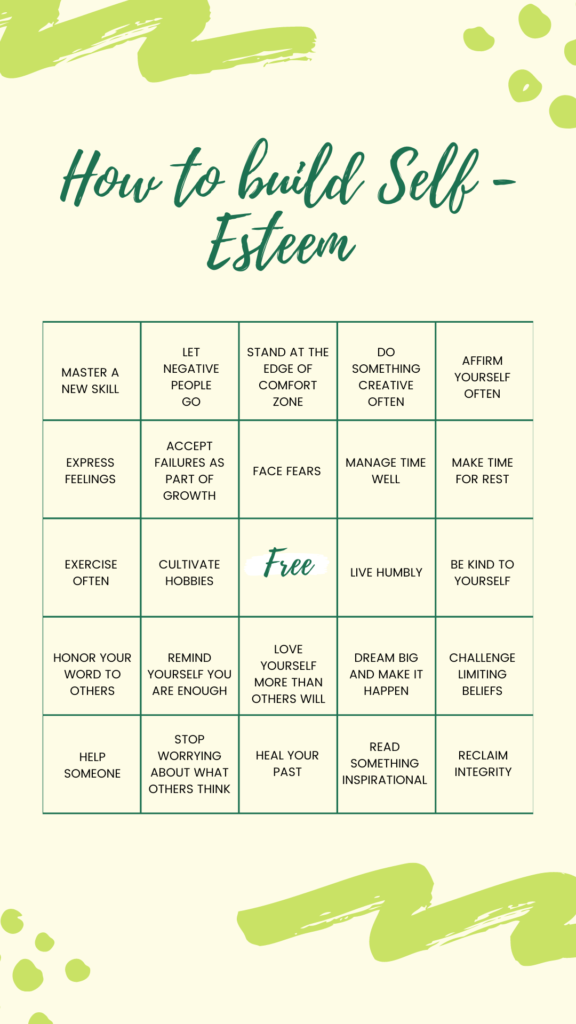
Practice self-compassion
Treat yourself with kindness and understanding rather than self-criticism. Recognize that everyone makes mistakes, and use mistakes as opportunities for growth and learning.
Self-compassion is the practice of accepting and being kind to yourself. It’s about learning to be compassionate toward your own pain, mistakes, and shortcomings.
Here are some ways you can practice self-compassion:
- Be kind to yourself when you’re hurting.
- Don’t blame yourself for things that happen in your life or for the way you feel about them.
- Don’t compare yourself to others (or try not to).
- When you make a mistake or fail at something, let it go and move on without beating yourself up over it!
Focus on strengths
Identify your unique strengths, skills, and qualities, and focus on developing them further. Set goals that align with your strengths, and celebrate your accomplishments.
Challenge negative self-talk
Notice negative self-talk and challenge it with more realistic and positive self-talk. Reframe negative thoughts into more balanced or positive ones.
Negative self-talk is one of the most common reasons people don’t achieve the goals they set for themselves. It’s important to be aware of negative self-talk because it can eat away at your confidence and make you feel like giving up on your goals before you even try.
The first step in dealing with negative self-talk is to become aware of it. Once you realize when you’re thinking negatively about yourself, you can take steps to change those thoughts into something more positive.
If your goal is to lose weight, for example, then instead of telling yourself that “I’m too fat,” try telling yourself, “I want to be healthier.” This will help change the way you think about your body image and how much effort it takes to get there.
Develop positive relationships
Surround yourself with positive and supportive people, and spend time with those who make you feel good about yourself. Avoid relationships with those who are critical or unsupportive.
The most successful people in the world work hard and play hard, but they also know how to build positive relationships with the people around them.
If you want to be successful in life, you have to find a way to connect with other people. You may think that all of your success is dependent on your own efforts, but you’d be wrong—your success is largely dependent on how well you’re able to work with others.
To build positive relationships with others, start by being nice and kind. Don’t worry about impressing others or being perfect; instead, focus on making them feel comfortable in your presence and helping them feel good about themselves. This will make it much easier for people to trust you, which means they’ll want to work with you more often!
Practice self-care
Take care of yourself physically, emotionally, and mentally. Get enough sleep, exercise regularly, eat a healthy diet, and take time to relax and engage in activities you enjoy.
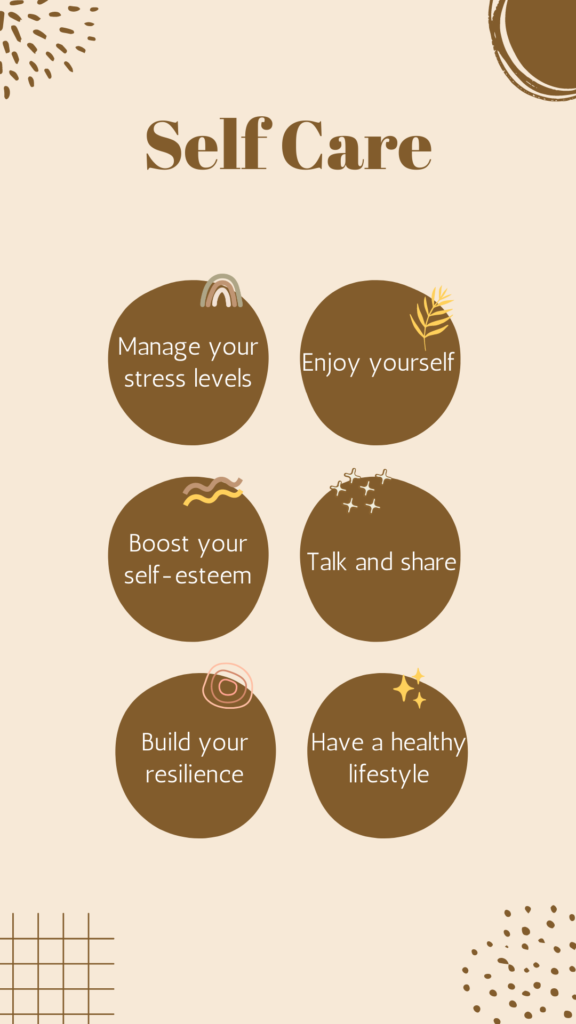
Try new things
Challenge yourself to step outside of your comfort zone and try new things, even if they initially make you uncomfortable. Taking risks and facing fears can help to build confidence and self esteem.
Seek professional help
If low self-esteem interferes with your daily life or causes significant distress, consider seeking professional help, such as therapy or counseling.
How to boost self esteem
Boosting self esteem is a way of enhancing your belief and confidence in yourself, and it can help you approach life with greater positivity and resilience.
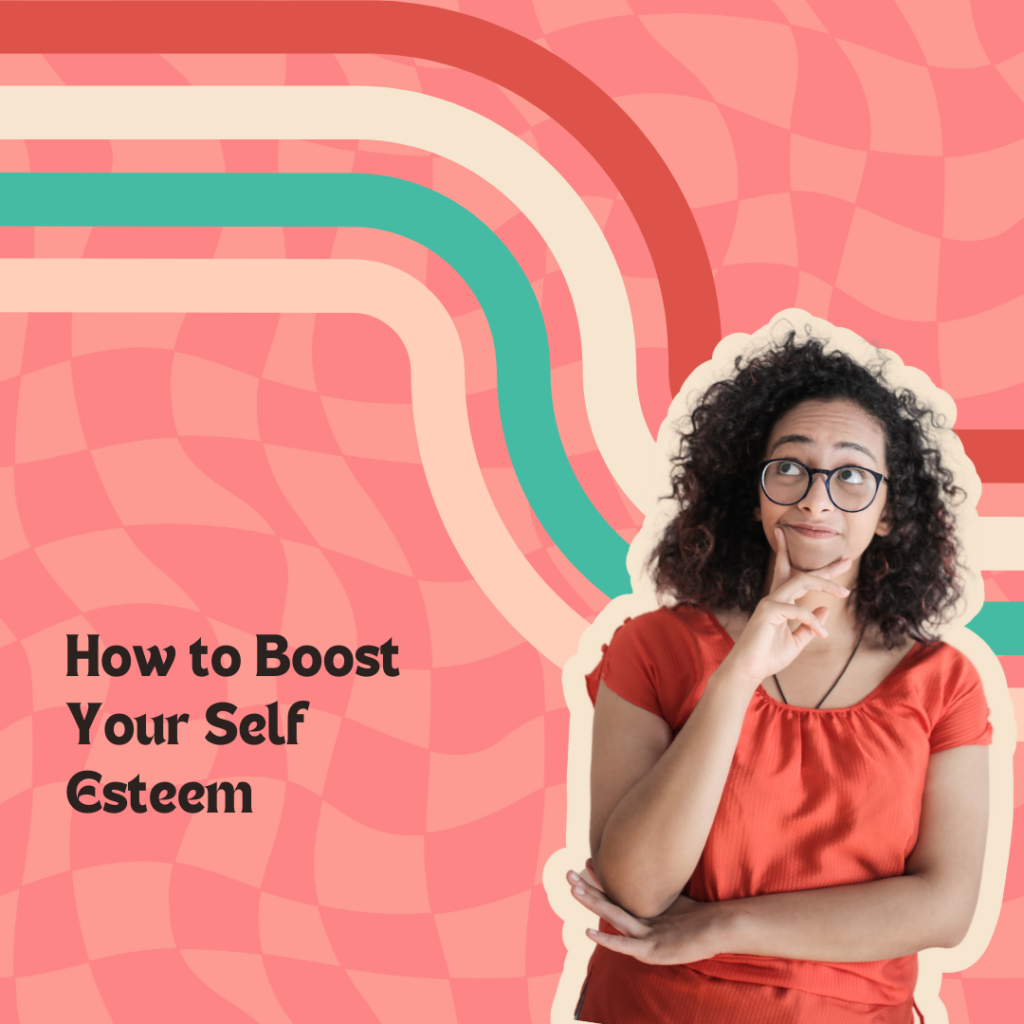
Here are some ways to boost your self esteem:
Celebrate your successes
Take time to recognize your achievements and accomplishments, no matter how small. Acknowledge your hard work and effort, and be proud of what you have accomplished.
Take care of your physical health.
Engage in regular physical exercise, eat a healthy diet, and get enough sleep. These can all have positive effects on your mood and self esteem.
Practice positive self-talk
Use positive affirmations, remind yourself of your strengths, and challenge negative self-talk.
Avoid comparisons
Avoid comparing yourself to others, as it can lead to feelings of inadequacy and low self-esteem. Focus on your own progress and accomplishments rather than how you measure up to others.
Set goals
Set achievable goals that align with your strengths and interests. Achieving these goals can help to boost self-confidence and self esteem.
Do things you enjoy
Engage in activities that you enjoy and make you feel good about yourself. This can help to boost your mood and enhance your overall sense of wellbeing.
Surround yourself with positive people.
Spend time with people who support and encourage you, and avoid those who are overly critical or negative.
How do I improve my self-esteem?
Improving self esteem involves a variety of strategies and actions that can help to change your beliefs and feelings about yourself.
Here are some ways to improve your self esteem:
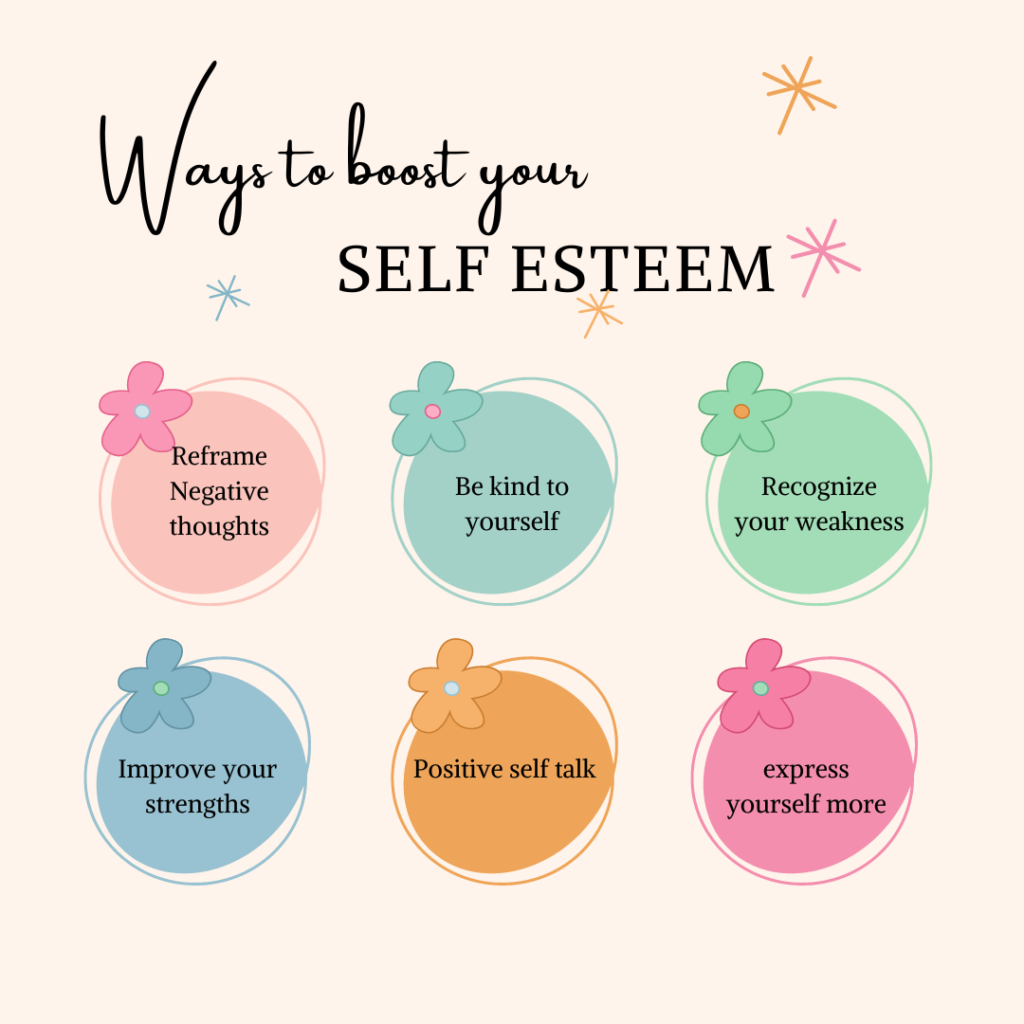
1. Recognize negative thoughts and work to combat them. When you think negatively about yourself, step back and question that thought. Is it true? Is there evidence to support it? Recognizing and addressing negative thoughts can help you create more positive ones.
2. Spend time with positive people. Positive and supportive people can help you build your self esteem by providing encouragement and kind words. They can also help you think more positively about yourself by reminding you of what makes you special.
3. Set realistic goals for yourself. Achieving goals can be a great way to build self esteem. However, setting unrealistic goals can leave you feeling defeated and discouraged if they are not met. Instead, set achievable goals so you can celebrate successes when they happen.
4. Focus on your strengths. Everyone has something they are good at, and it is important to focus on those strengths rather than weaknesses when trying to improve self esteem. Take the time to identify your talents, skills, and abilities so that you can focus on them rather than the things that you are not good at.
Wrap up,
Remember that building self esteem is a process that takes time and effort. Be patient, and don’t be too hard on yourself if you experience setbacks or obstacles. Keep working towards your goals, and celebrate the progress you make along the way.


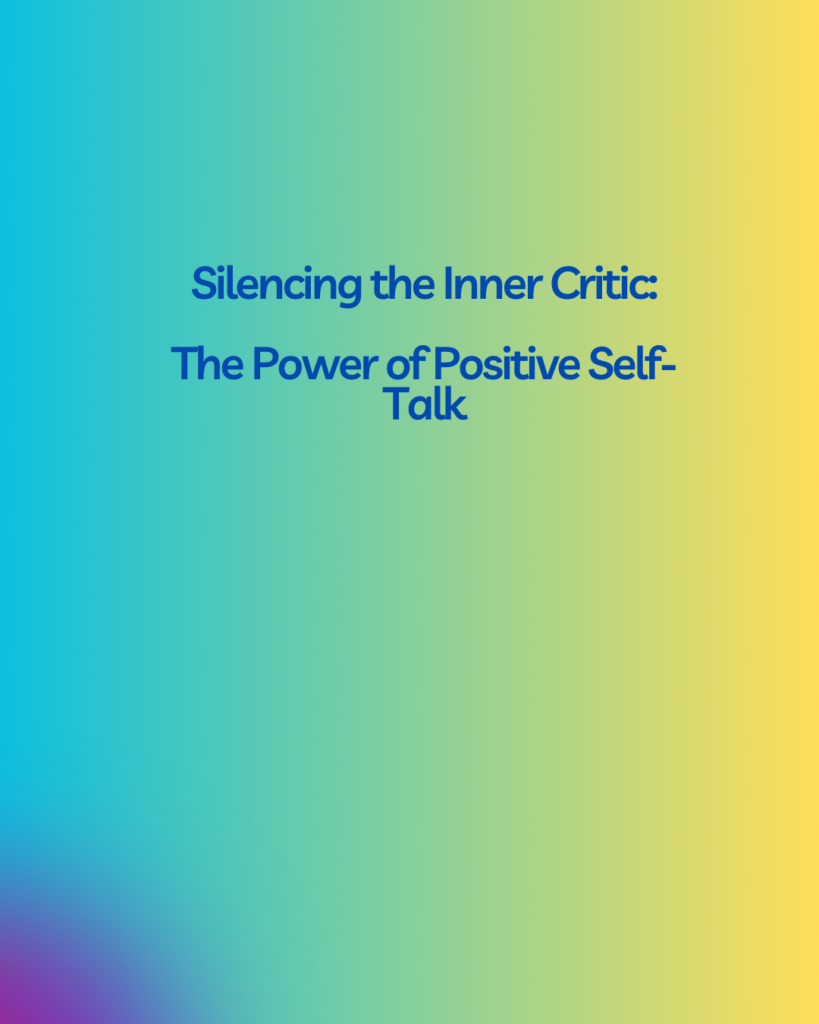

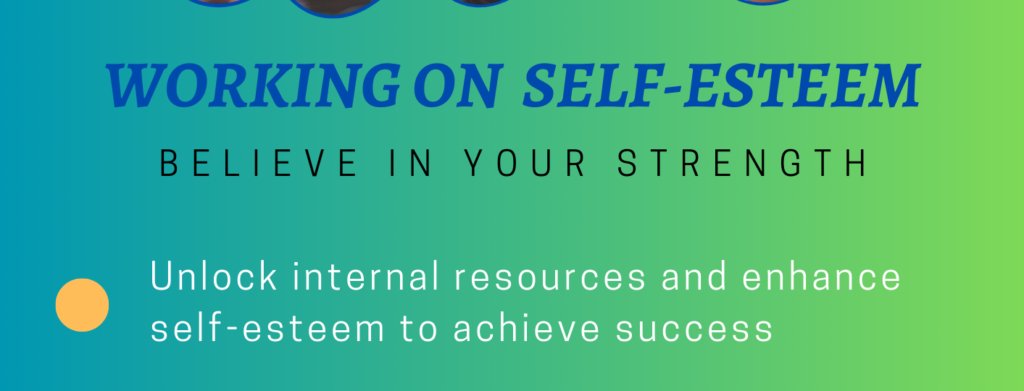
3 thoughts on “How to Boost Your Self Esteem When It’s Low”